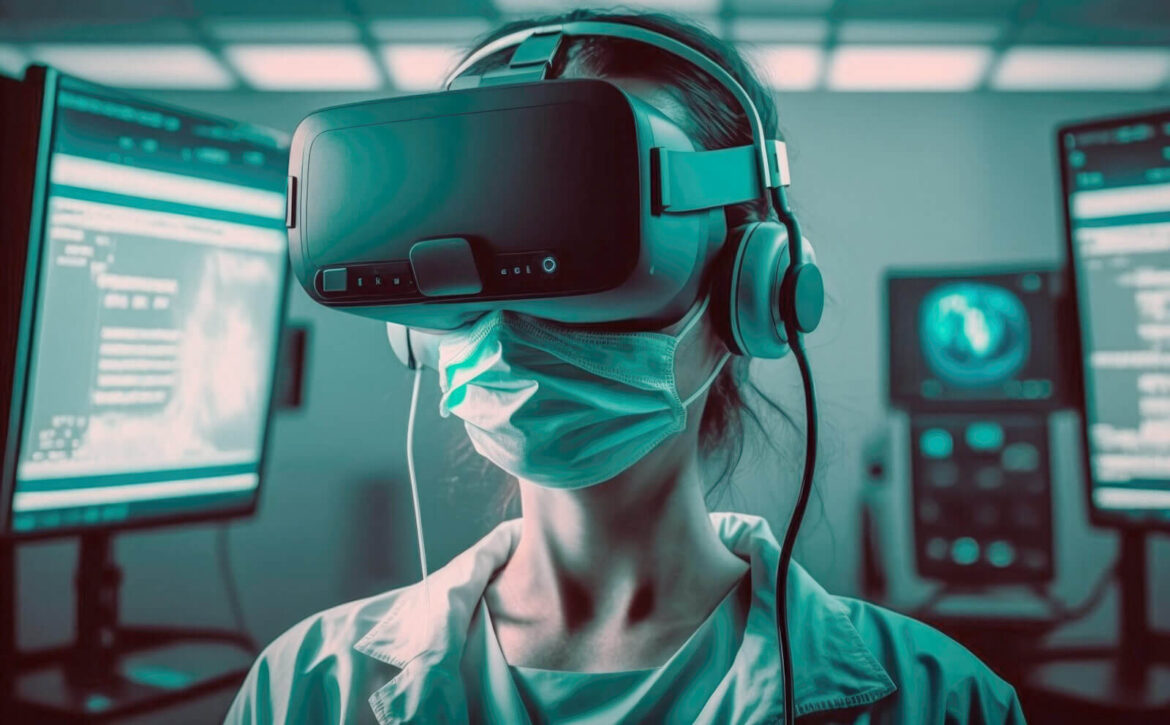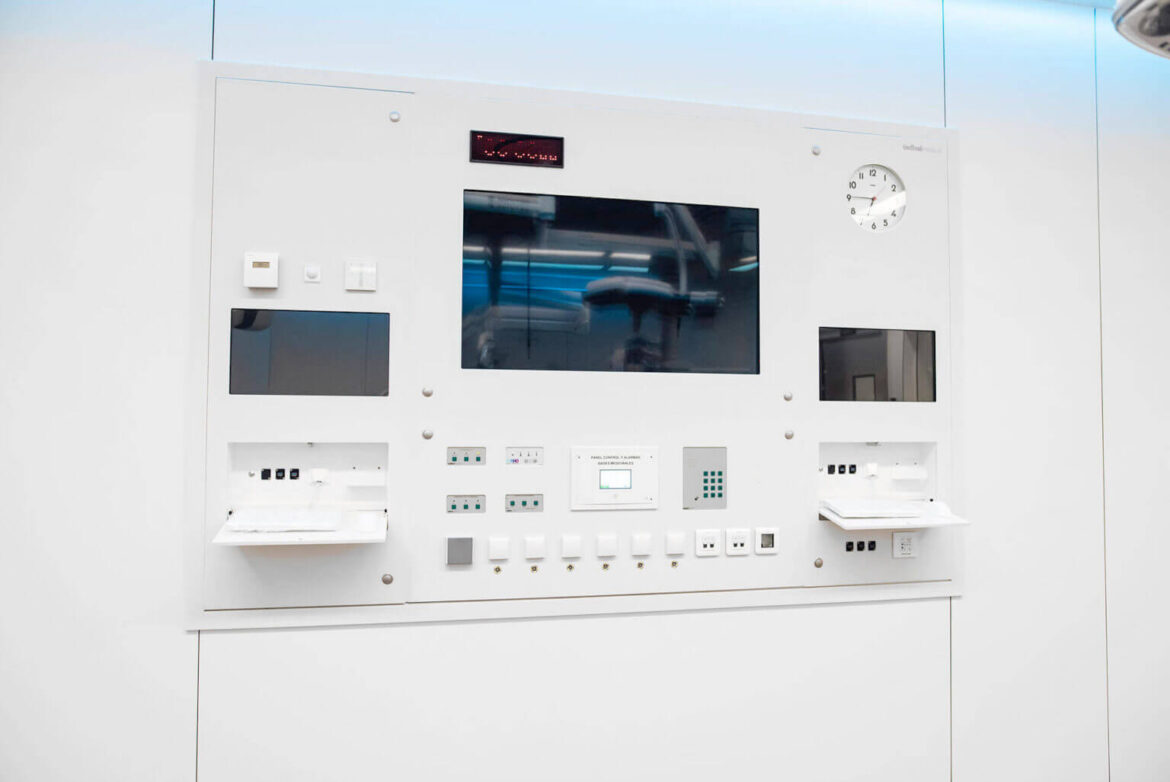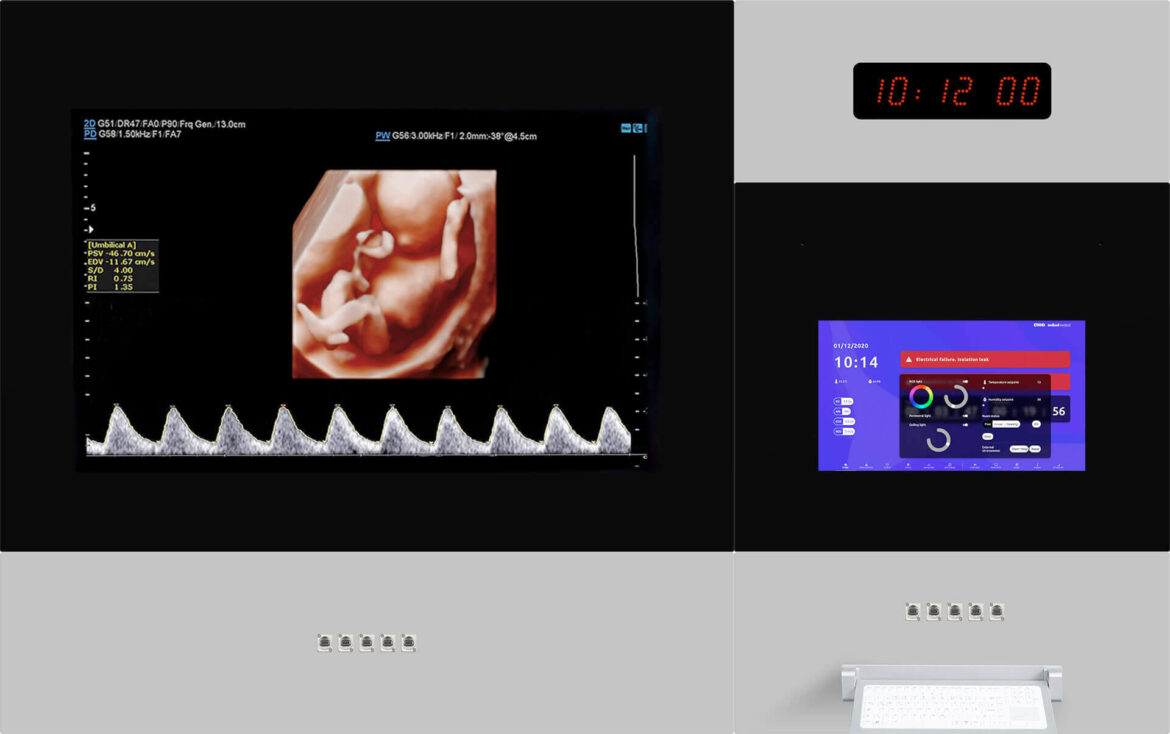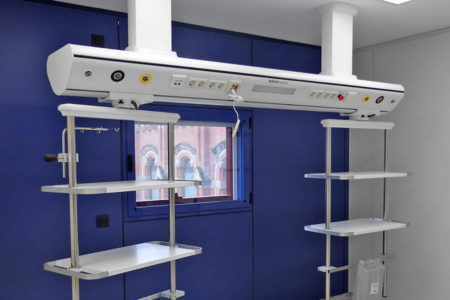The digital revolution has had a major impact on many sectors, and one of those that has seen significant change is the healthcare and manufacturing hospital sector worldwide.
Digitalisation has brought with it a number of benefits and challenges in these fields. It is therefore important for healthcare organisations and companies in the hospital sector to stay ahead of the curve in order to continue to provide quality and competitive services in the future.

Digitalisation as a key factor
Digitalisation is crucial to making healthcare more sustainable. Especially the ability to collect and analyse data more efficiently.
Digital technologies such as electronic medical record management systems, hospital Data Networks, Artificial Intelligence and Machine Learning, as well as the most innovative medical equipment, make it possible to store an infinite amount of data, access patients’ medical records electronically, identify patterns, reduce costs, predict disease risk and, in short, make better decisions in the field of hospital healthcare.
In this regard, we can also highlight the digital revolution in healthcare brought about by 3D printing technology and virtual reality. For example, it is being used in the training of doctors and surgeons to allow them to practice procedures in a simulated environment before performing them on real patients.

The importance of being in the spotlight of the digital revolution
Tedisel is confident that automation and artificial intelligence will continue to play an increasingly important role in the sector. That is why we focus on innovation to offer solutions that are more efficient to use. From the development and enhancement of the technical panel systems Q PANEL and DIAMOND to the configuration of our own HERMES software system that guarantees and analyses the secure transmission of data in a centralised and user-friendly manner.
In order for this digital revolution to be carried out with maximum guarantees, it is also essential to have durable and resistant medical equipment, optimally designed to guarantee hygiene and conservation.
The choice of hospital equipment is not a trivial matter, as medical environments are very busy and there is always a risk of possible contamination contact.

© tedisel medical. Clínica Girona (Girona – Spain)
Challenges
Despite the benefits of the digital health revolution, there are also other important challenges such as the protection of privacy and security of patient data, and the digital divide between healthcare organisations and patients.
The best solutions for the healthcare industry
Tedisel Medical contributes to the digital revolution in the medical sector by offering solutions with great benefits for healthcare professionals:
- Ease of use
Our Hermes operating room control software enables the medical and nursing team to use multiple devices and to easily listen to and interact with each other in such critical and fast-paced environments as operating rooms, with a clear voice and simple and clear listening to information.
- Improved time management
Mobility solutions in a hospital environment can have a positive impact on healthcare staff, allowing them to save time and better serve patients, something that Hermes and the QPanel and Diamond technical panels contribute to.

© tedisel medical. DIAMOND
- Staff safety
Implementing connector devices that incorporate alarm systems can help healthcare workers perform their work in a safe and secure manner.
- Protecting patient data
Hermes is also able to help preserve patients’ privacy and confidential data: it locks personal mobile devices in restricted areas, allows staff to check medication and update and share clinical information and electronic health records without leaving the patient’s bedside, etc.
- Improving patient safety
This is a priority. The use of sensors and optimal designs with high technology, thinking in the whole of each hospital area, help the wellbeing of patients.
All these Tedisel solutions exist thanks to technological development and the digital revolution in the health sector, which highlights the need for hospital equipment adapted to the needs of an increasingly digital and technological world.









